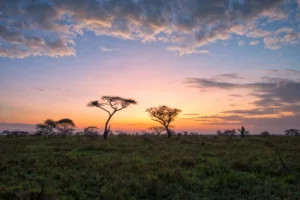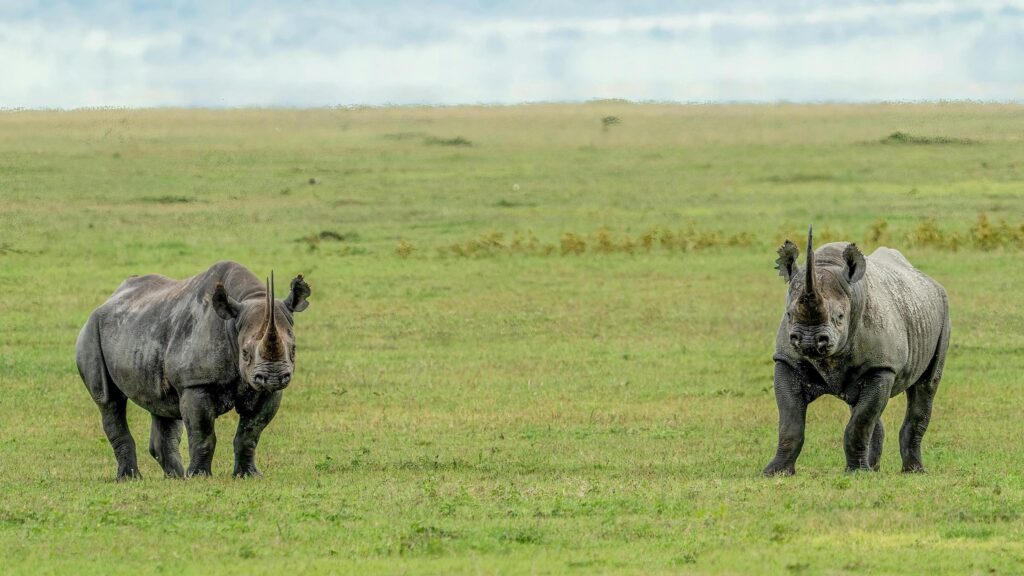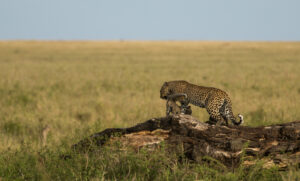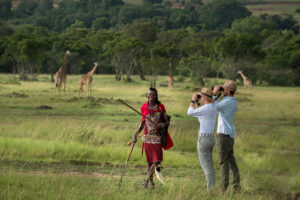How to Safari Sustainably: Traveling Gently Across East Africa
A lion’s roar echoing across the Serengeti plains. Elephants moving silently through acacia woodlands. Maasai herders guiding cattle along ancient paths. To journey into East Africa’s wild spaces is to step into one of the last great theaters of the natural world. But these landscapes, as vast and untamed as they appear, are fragile.
Tourism here is both opportunity and challenge. It funds conservation, creates livelihoods, and draws the world’s gaze to the beauty of savannas and forests. Yet it also leaves footprints on ecosystems, on water tables, and on the rhythms of wildlife. A sustainable safari is not a compromise; it’s a promise that the journeys we take today will leave room for tomorrow.
Here are ten ways travelers can tread more lightly, ensuring their safari deepens wonder without diminishing the wilderness.
1. Begin With Where You Stay
Safari lodges are more than bases for adventure—they are experiments in how humans can coexist with wild spaces. Increasingly, camps in Kenya, Tanzania, and Rwanda are powered by solar grids, recycle their greywater into lush kitchen gardens, and channel portions of their revenue directly into anti-poaching patrols and community trusts.
Seek out these places. When booking, ask your tour operator specifically about sustainability certifications and community partnerships. Look for credentials like EcoTourism Kenya’s Gold or Silver rating or Fair-Trade Tourism, which mark a lodge’s deeper commitment. While eco-lodges might have a slightly higher upfront cost, remember that your money is directly funding conservation and fair wages, making the value immeasurable. By choosing such stays, you help write a future where luxury and sustainability share the same tent canvas.
2. What You Carry Matters
Every object that travels with you has a story. A single-use plastic bottle can outlast the memory of your trip by centuries, lodged in a riverbank or tangled in a giraffe’s path.
Pack with intention:
- A reusable water bottle instead of disposable plastic.
- Biodegradable soaps and shampoos to keep streams clean.
- Clothes in muted earth tones, not just for blending in but for respecting the camouflage of the wild.
To travel light is to travel kindly—on bush planes, in safari vehicles, and on the land itself.
3. Observe, Don’t Interfere
The privilege of a safari is not just proximity, but presence. When a cheetah stalks through tall grass or a herd of elephants ambles to a waterhole, your role is witness, not participant.
- Keep a respectful distance.
- Let silence be your language.
- Never feed wild animals; it unravels the instincts that keep them alive.
The truest safari encounters are not orchestrated. They unfold in their own time, on their own terms.
4. Water and Energy Are Precious
Across East Africa, rivers run shallow, and communities contend with scarcity. In this context, every long shower or endlessly laundered towel extracts more than comfort—it consumes what locals ration daily.
Take shorter showers. Reuse your linens. Turn off lights and devices when you leave. In choosing restraint, you honor the elemental forces that shape life on these lands.
5. Engage With and Support Local Communities
Wildlife is only half the story of Africa’s landscapes; people are the other. Sustainable safaris weave both together.
Support local economies not by bargaining for the lowest price, but by paying artisans fairly for their work. Eat food grown in village farms or community gardens. Visit cultural projects where your presence helps sustain traditions rather than commodify them.
When communities prosper from conservation, they become its strongest allies. Every beaded necklace, every carved stool bought from its maker is an investment in the wild.
6. Offset Your Carbon Footprint
A safari often begins with a long-haul flight. It continues in diesel-fueled Land Cruisers that traverse hundreds of kilometers. The carbon footprint is undeniable.
Offset it, where you can. Look for certified programs like Gold Standard or Verified Carbon Standard to ensure your investment has a real impact. Plant trees through these initiatives, invest in renewable energy, or choose shared vehicles instead of private game drives. Some safari operators already track and offset emissions—support them.
7. Stay Longer, Move Less
In the age of bucket lists, travelers may rush from the Serengeti to Amboseli to Ngorongoro in a single week. Yet every transfer extracts cost: more fuel, more flights, more impact.
Consider staying longer in fewer places. Watch the daily drama of a single waterhole unfold. Notice how light changes a savanna across three sunsets. Depth, not distance, defines the most powerful safaris.
8. A Landscape Without Plastics
n 2019, Tanzania joined Kenya and Rwanda in banning plastic bags. This wasn’t just legislation—it was an acknowledgment that even the smallest plastic fragment can disrupt a zebra’s grazing land or a river’s flow.
Travelers can continue this work: bring your own reusable containers, refuse straws and disposable cutlery, and carry snacks in cloth or tin. Leave no fragments of your journey behind.
9. Learn, Then Teach
Sustainable travel is rooted in understanding. Before you arrive, learn about the places you will visit—the challenges elephants face with shrinking corridors, or the balance pastoralists must strike between livestock and predators. Ask your guides questions.
And when you return, let your stories carry more than photographs. Tell others not just of lions and sunsets, but of the fragile threads that hold these ecosystems together. Your voice can amplify the urgency of conservation.
10. Leave Only Footprints
The principle is timeless: take nothing but memories, leave nothing but footprints. Don’t pocket stones, shells, or plants.
Don’t wander off-road where tire tracks can scar landscapes for years. Don’t leave behind wrappers or bottles for someone else to find.
The wild is perfect as it is. Let it remain so.
Traveling With Purpose
A safari is a mirror. It shows us both the grandeur of life on Earth and the responsibility we carry as its stewards. Lions may reign over the plains, but it is human choice—conscious or careless—that will decide their fate.
At Altivago Travel, we believe every journey must serve more than the traveler. It must serve the land, the animals, and the communities that host us. A safari taken in this spirit is not just a holiday. It is a covenant with the future.
To stand beneath the African sky, to hear the distant cry of a fish eagle, to watch wildebeest move like rivers across the Serengeti—these are gifts. To travel sustainably is to ensure they will not become memories, but legacies.
Ready to plan your sustainable safari adventure? Contact Altivago Travel today to craft a journey that honors East Africa’s people, wildlife, and wild places.






